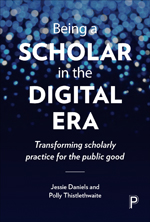Book by James Hendler and Alice Mulvehill: “Will your next doctor be a human being—or a machine? Will you have a choice? If you do, what should you know before making it?
This book introduces the reader to the pitfalls and promises of artificial intelligence in its modern incarnation and the growing trend of systems to “reach off the Web” into the real world. The convergence of AI, social networking, and modern computing is creating an historic inflection point in the partnership between human beings and machines with potentially profound impacts on the future not only of computing but of our world.
AI experts and researchers James Hendler and Alice Mulvehill explore the social implications of AI systems in the context of a close examination of the technologies that make them possible. The authors critically evaluate the utopian claims and dystopian counterclaims of prognosticators. Social Machines: The Coming Collision of Artificial Intelligence, Social Networking, and Humanity is your richly illustrated field guide to the future of your machine-mediated relationships with other human beings and with increasingly intelligent machines.
What you’ll learn
• The fundamentals of neuromorphic computing
• The fundamentals of knowledge graph search and linked data as well as the basic technology concepts that underlie networking applications such as Facebook and Twitter
• How the change in attitudes towards cooperative work on the Web, especially in the younger demographic, is critical to the future of Web applications…(More)”


